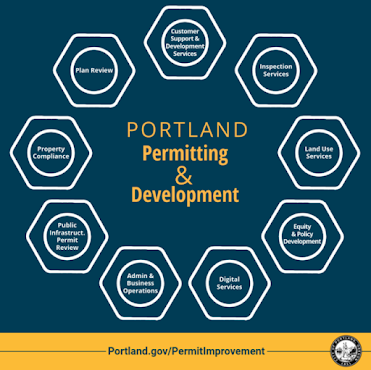Amidst the bedlam
I wrote last fall about the distinct possibility that the pending changes to the Portland city charter will provide ample cover for bureaucrats who want to gain power and money while the chaotic transition occurs.
You can bet that every single bureaucrat in Portland has spent all of this year, and will spend all of next, trying to use the charter change chaos to their advantage. As all the dust flies in the gigantic reshuffling of responsibilities, the arrogant children in the bureaus will be quietly consolidating their power, jockeying for raises, and slipping in changes to rules and procedures in order advance their obnoxious pet policies.
The bike children. The water bureau pork chefs. The worthless cops. The know-it-all urban planning overlords. The homeless nannies. In a couple of years, no elected politician will have direct control over any of them. There will be more distance between the voters and the bureaucrats than ever. Whether the minions succeed in gaining more power will depend on the so-far-unidentified new city manager. I'd be shocked if he or she isn't a lifelong bureaucrat as well.
Throw in the fact that under "rank choice" voting, a third or more of the City Council will be inept cartoon figures, and the neighborhood associations have good reason to worry. We all do.
And so it was more than a little dread that I read this story, sent to me by an alert reader last week:
The city of Portland will soon be making changes to its residential and commercial permitting process. A new bureau, Portland Permitting and Development, is intended to make the process easier and more streamlined....
The new bureau brings together staff from the old Bureau of Development Services — which will be phased out — with teams from the Parks & Recreation, Transportation, and Water and Environmental Services bureaus. It will employ about 350 people...
In February, the Portland City Council approved a set of new policies intended to lower the cost of building new homes, including a tax break expansion for new apartment buildings subject to inclusionary housing requirements. The council also approved a “regulatory relief” package that relaxes and puts on hold several zoning and permitting requirements for developers to build housing.
Nobody's talking much about this, especially not about the budget impact, but I'd be shocked if it isn't going to cost the taxpayers a pretty penny over and above what they're paying now. And who wins? The developer weasels and the bureaucrats, of course. It's nothing new. It's why, with few exceptions, the city's nicer neighborhoods are doomed.
I suppose there's also a good chance that the new mayor and city manager will want to alter the new system to fit their visions, and so they may be redoing the whole thing in a year or two. You apartment peddlers and construction goons, save some dates on your calendars for some more focus groups.

Did you know that BDS is supposed to be self-financed from the development fees? With this "regulatory relief" one has to wonder how much money will be needed, and where it will come from. Plus, we all know the new structure, with oodles of addional elected officials, staff, city administrators, etc. will cost millions more.
ReplyDeleteMy theory has always been - all the "sustainability" infill has nothing to do with the environment, and everything to do with increasing property taxes. Governments cannot live on 3% annual revenue increases. Staff costs, around 60-80% of costs, generally include a 3% annual step increase, plus 2-4% COLA. How long until our quietly crumbling infrastructure can no longer handle residential 'hoods with half again as many houses, or the ubiquitous and ugly 30 unit apartment bunkers? But, the new bureau will be there to churn out permits ad nauseum, without many of those protective requirements. You know, like tearing down houses with lead and asbestos, and maybe informing the neighbors. Or cutting down legacy trees, but, hey, you don't need to plant any replacements. Sigh, rant over.
Lugnuts
ReplyDeleteI set aside some time last night a watched “The Big Short” on Amazon Prime. The behavior and thinking of the characters reminded me of Portland politics
ReplyDeleteIt’s no accident that Prosper Portland chose now to push for a bunch of new Urban Renewal Areas.
ReplyDeleteAnybody know what the occupancy rate is for all these crap apartments? I'm guessing not too many are filled up. The amount of money in the economy is so high, the banks are giving away building loans as one of the few ways to put that money to use. We don't have a housing shortage, we have a bloated money surplus.
ReplyDelete